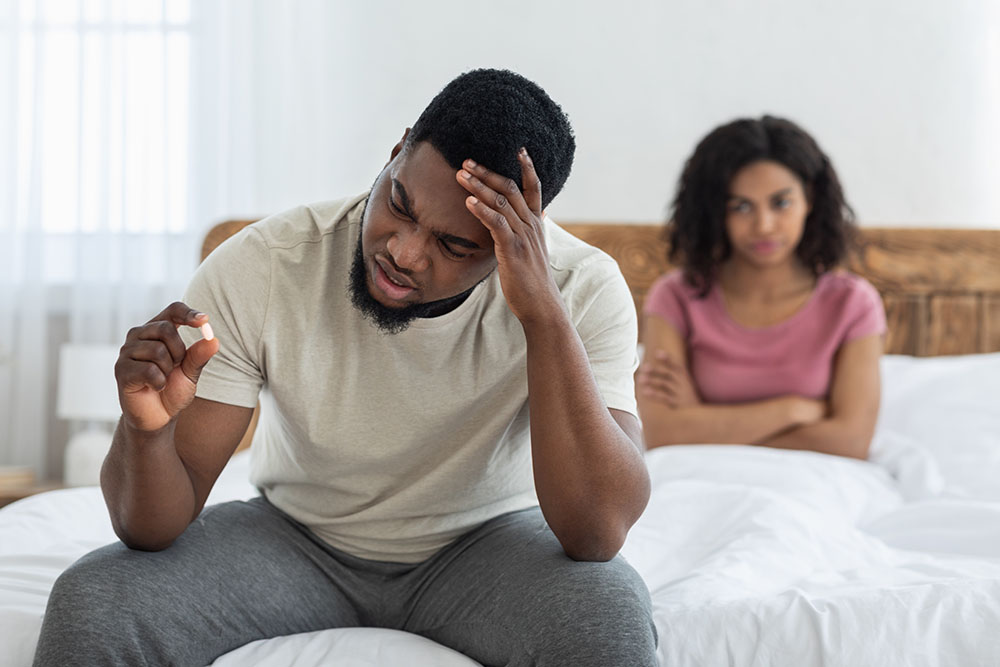When it comes to overall health and wellness, sleep is often underestimated. While it is well known that inadequate sleep can have adverse effects on mental and physical health, its impact on sexual health, particularly erectile dysfunction (ED), is frequently overlooked. In this article, we will explore the crucial link between sleep and ED in men, highlighting the importance of quality sleep for maintaining optimal erectile function.
Understanding Erectile Dysfunction:
Erectile dysfunction, commonly referred to as ED, is the persistent inability to achieve and maintain an erection sufficient for sexual intercourse. It affects millions of men worldwide and can have a profound impact on their self-esteem, relationships, and overall quality of life. Numerous factors contribute to the development of ED, including age, underlying medical conditions, lifestyle choices, and even psychological factors.
The Sleep-ED Connection:
Emerging research suggests a strong correlation between sleep quality and erectile function. Sleep plays a vital role in regulating hormone levels, enhancing blood flow, and maintaining overall cardiovascular health – all of which are directly linked to sexual performance.
1. Hormonal Balance: Adequate sleep supports the delicate balance of hormones in the body. Specifically, it helps maintain optimal levels of testosterone, the primary male sex hormone. When testosterone levels are low, the risk of developing ED increases. Sleep deprivation has been shown to disrupt testosterone production and lead to hormonal imbalances that can contribute to the development of ED.
2. Blood Flow and Vascular Health: Erectile function heavily relies on healthy blood flow to the penis. During sleep, the body undergoes crucial restorative processes, including the repair of blood vessels and improved circulation. Chronic sleep deprivation, on the other hand, can contribute to the development of cardiovascular problems, including hypertension and atherosclerosis, which can impede blood flow to the penis and lead to ED.
3. Psychological Well-being: Sleep deprivation can also have a detrimental impact on mental health and overall well-being. Anxiety, stress, and depression are common psychological factors that contribute to ED. Lack of sleep exacerbates these conditions, leading to a vicious cycle of poor sleep and decreased sexual function.
Improving Sleep for Better Sexual Health:
Recognizing the invaluable role of sleep in erectile function, here are some strategies to enhance sleep quality:
1. Prioritize Sleep Hygiene: Establish a regular sleep routine by going to bed and waking up at consistent times. Create a sleep-friendly environment by keeping the bedroom cool, dark, and quiet.
2. Avoid Stimulants: Limit the consumption of caffeine and alcohol, especially before bedtime, as they can disrupt sleep patterns and hinder restful sleep
.
3. Manage Stress: Incorporate stress management techniques into your daily routine, such as relaxation exercises, meditation, or engaging in hobbies that promote relaxation.
4. Exercise Regularly: Regular physical activity has been shown to improve both sleep quality and sexual function. Aim for at least 30 minutes of moderate-intensity exercise most days of the week.
5. Seek Professional Help: If sleep disturbances or signs of erectile dysfunction persist, it is essential to consult a healthcare professional who can provide personalized guidance and treatment options.
Quality sleep is not only essential for overall well-being but also plays a significant role in maintaining optimal sexual health. The close relationship between sleep and erectile function highlights the importance of prioritizing healthy sleep habits. By recognizing the impact of sleep on erectile dysfunction, men can take proactive steps to enhance their sleep quality, consequently improving their overall sexual health and well-being.


